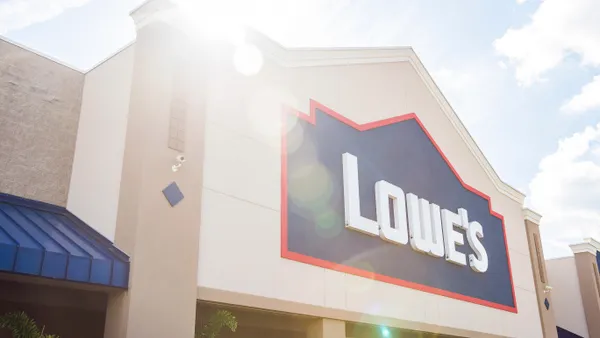WASHINGTON — UPS, Delta and Walmart spoke Thursday at an event hosted by the U.S. Chamber of Commerce about steps they're taking to eliminate human trafficking and forced labor along their supply chain and use their worldwide footprint to help where they can.
Walmart has changed its rules for suppliers to focus on fighting forced labor, said Ryan Burns, manager of federal government affairs at Walmart.
"We have clarified expectations for our suppliers for responsible recruitment, for eliminating forced labor and human trafficking in their businesses and providing safer working conditions," Burns said.
Walmart has provided its suppliers with a training portal to help guide them through these new standards. "We don’t want to just hold them to these standards, we want to help them get there," he said.
Burns did not say if Walmart had changed any suppliers as a result of these new standards.
The transportation industry deals with human trafficking issues on a regular basis, particularly the airline sector. About 70% of human trafficking victims come through airports, according to Nicole Clifton, the VP of Global Public Affairs for UPS.
Because of this, Delta took the step of forming an anti-trafficking steering committee in 2016, said Mimi Braniff, the managing director of government affairs at Delta. This committee provides guidance on how to train Delta employees, thousands of which have now received training in how to spot and report potential human trafficking incidents, Braniff said.
Drivers at UPS have been given similar training, as truck stops are common areas where victims of human trafficking are bought and sold. Drivers were trained in both the importance of not being involved with these transactions, but also how to report it when they see it taking place. If they can reduce demand, that can potentially stymie the supply — and a worldwide workforce can help in that goal, Clifton said.
"Our drivers are everywhere," she said.
The U.S. Chamber of Commerce held the event to relaunch its Task Force to Eradicate Human Trafficking and has released a document to help guide businesses through the process of identifying trafficking.
The task force originally began in 2017 but has been dormant for about a year, according to Michael Billet, the senior manager for policy research at the U.S. Chamber of Commerce. "We’re looking to revamp the task force with more companies from more industries and make it a little more member centric," Billet told Supply Chain Dive.
The guidance released by the Chamber was produced along with A21, a global non-profit that works to end human trafficking and forced labor. The document is meant to be used by companies that want to have a plan in place when they encounter human trafficking. Some of the advice inside includes how using advanced technology can help track a supply chain, making a public responsibility statement and auditing suppliers to ensure they live up to these goals.
As part of its relaunch, the Chamber task force wants to generate awareness of human trafficking and forced labor and highlight how companies can help, but what the outcomes will look like has yet to be finalized, said Glenn Spencer, the senior VP of the employment policy division at the U.S. Chamber of Commerce.
"At the next meeting we’re really going to focus in on what specifically are the next outcomes," Spencer said, referring to a meeting the Chamber plans to hold toward the end of winter or early spring.














